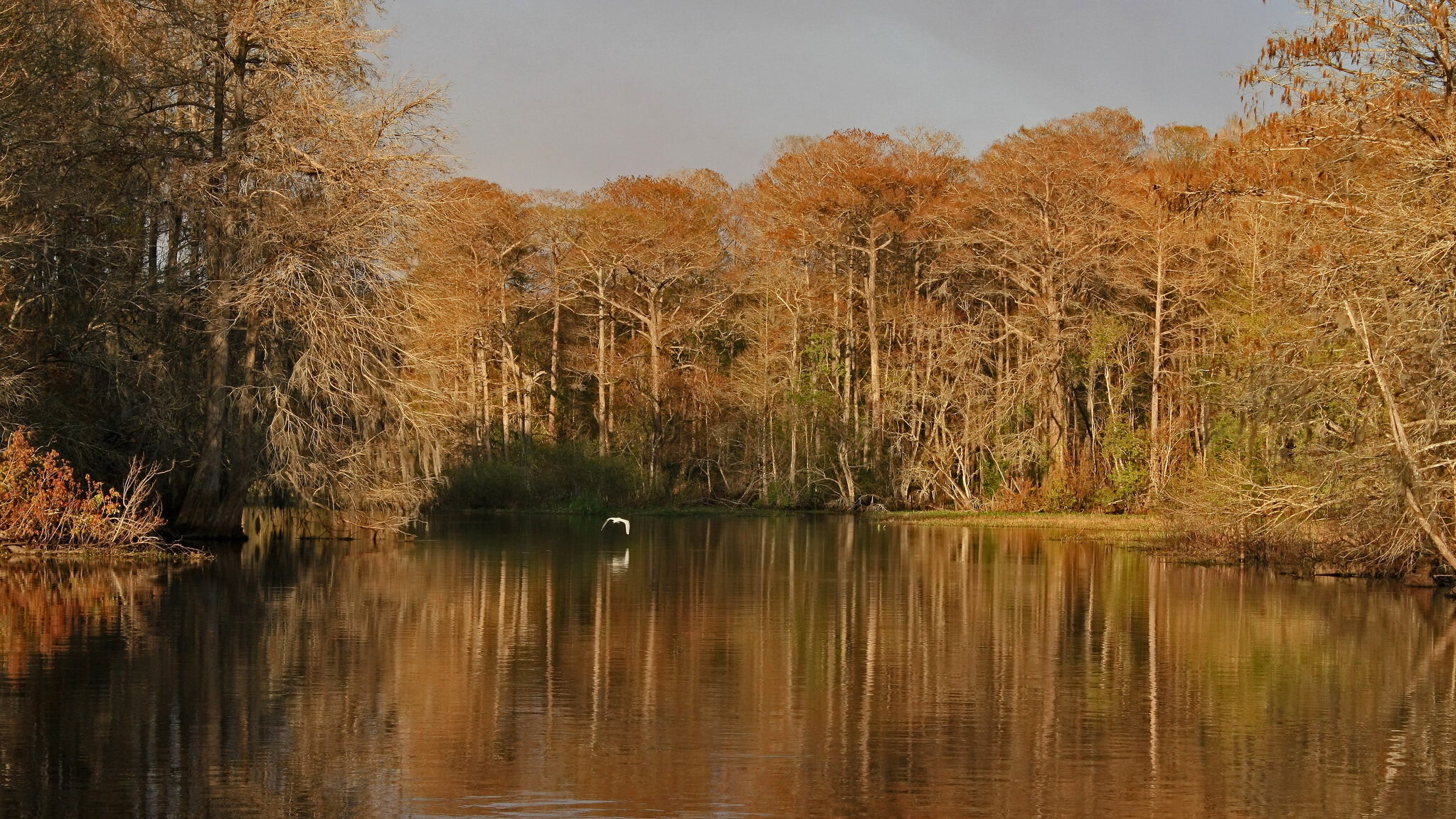Future of Aquatic Flows: Exploring Changes in the Freshwater/Saltwater Interface and Related Impacts to Aquatic Species

Project Information
Principal Investigator: Natalie Nelson (North Carolina State University)
Project Start: October 2022
Proposed Project Completion: September 2024
Implements Science Plan Theme: Adaptation
Co-Investigators: Simeon Yurek (Wetland and Aquatic Research Center)
Overview
Coastal ecosystems are uniquely vulnerable to changes in the quantity and quality of freshwater discharge. With a warming climate, changes in freshwater discharge into estuaries will interact with rising sea levels. Coastal natural resource managers need guidance on the potential impacts and vulnerabilities to better manage the risks to aquatic species and habitats and to mitigate species decline or collapse resulting from changes in freshwater availability. This project will inform resource managers on the development of management plans that protect coastal ecosystems and species while accounting for changes in freshwater availability under climate uncertainty. To achieve this, the proposed project has three objectives. The first objective is to analyze and synthesize the estuarine and marine species and habitats known to be sensitive to changes in the timing and quality of freshwater discharge, as well as the associated tipping points that define the relationships between freshwater inputs and species/habitats. Second, the project aims to predict changes in freshwater discharge to estuaries across the contiguous U.S. using the newly developed freshwater availability projections created by the USGS South Atlantic Water Science Center. The third goal is to build upon and apply existing vulnerability frameworks that integrate key social and ecological factors to a system of coastal species that are of cultural, ecological, or economic importance and vulnerable to shifts in freshwater availability. Partners will be engaged throughout all stages of the project, including natural resource managers at National Wildlife Refuges, National Parks and Seashores, and the U.S. Army Corps of Engineers, as well as state water management and fisheries agencies. The proposed project will generate reference tables, integrated datasets, vulnerability maps, estimates of uncertainty and risk for resources of interest, and a representative case study. Together these will provide actionable information to develop metrics for enhancing coastal resiliency. This project is a sub-project of an integrated National CASC synthesis project.
National CASC Project:
Future of Aquatic Flows: Towards a National Synthesis of Streamflow Regimes Under a Changing Climate
Principal Investigators: Richard Palmer (University of Massachusetts), Yinphan Tsang (University of Hawaii), Jason Fellman (University of Alaska), Ryan C Toohey (CASC), Gregg M Garfin (USGS), Michelle Baker (Utah State), Simeon Yurek (Wetland and Aquatic Research Center), Natalie Nelson (NC State University), Jennifer Koch (University of Oklahoma), Konstantinos Andreadis (University of Massachusetts), Holly Barnard (University of Colorado), Darren Ficklin (Indiana University), Meade Krosby (University of Washington)
Overview
In ecosystems characterized by flowing water, such as rivers and streams, the dynamics of how the water moves – how deep it is, how fast it flows, how often it floods – have direct effects on the health, diversity, and sustainability of underlying communities. Yet increasingly, climate extremes like droughts and floods are disrupting fragile stream ecosystems by specifically changing their internal aquatic flows. Human infrastructure, such as irrigation and dams, further disrupt these dynamics. These changes in climate and land use are leading to teh fragmentation of aquatic habtiat, degraded water quality, altered sediment transport processes, variation in the timing and duration of floodplain inundation, shifts in stream and lake temperatures, and the conversion of flowing streams to lakes and wetlands.
This project, termed the “Future of Aquatic Flows,” has three primary components:
1) Regional projects focused on key research questions related to the future of aquatic flows in a changing climate at each CASC region around the country;
2) A national synthesis component which will synthesize the state of the science on how aquatic changes will be impacted by climate change, and implications for ecosystems and human communities;
3) A training component for the post-doctoral researchers who participate in this cohort of the CAP Fellows program
“Future of Aquatic Flows: Towards a National Synthesis” is the umbrella project for the 2022-2024 Climate Adaptation Postdoctoral (CAP) Fellows cohort. Fellows situated at each of the nine regional CASCs will work with USGS, university, and regional partners to conduct research directly applicable to regional management priorities relating to aquatic flows, and will also work with each other on a national synthesis project on the topic.
